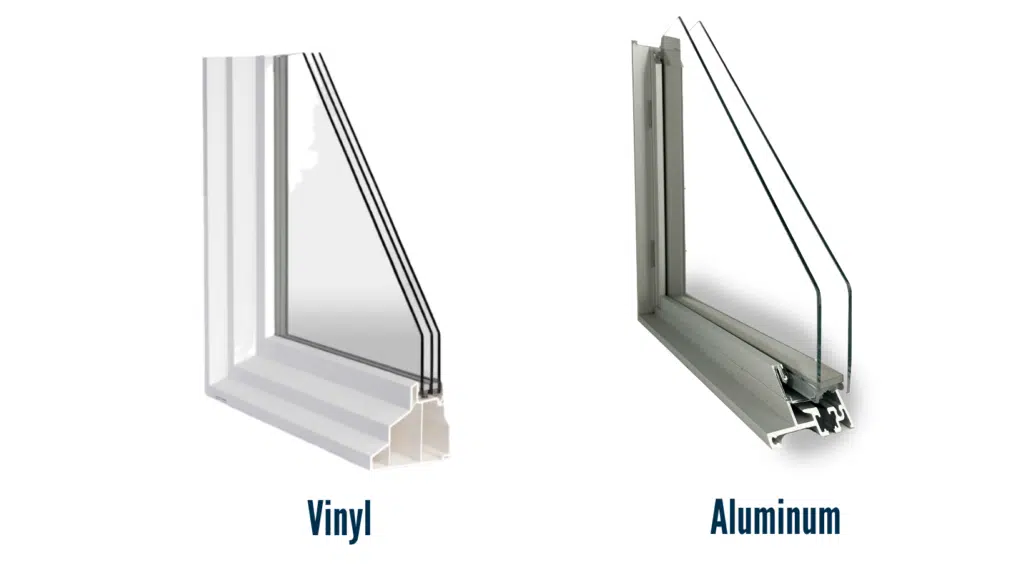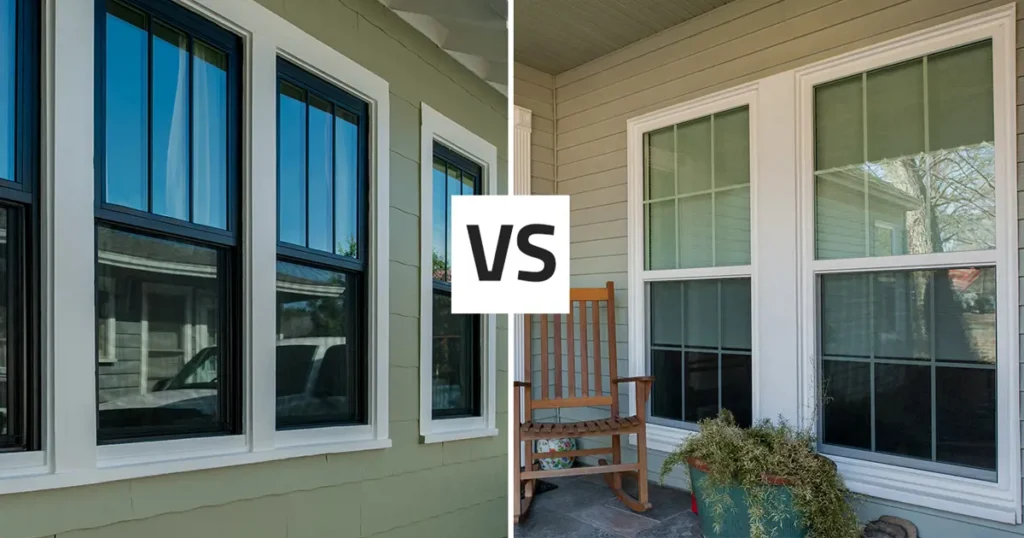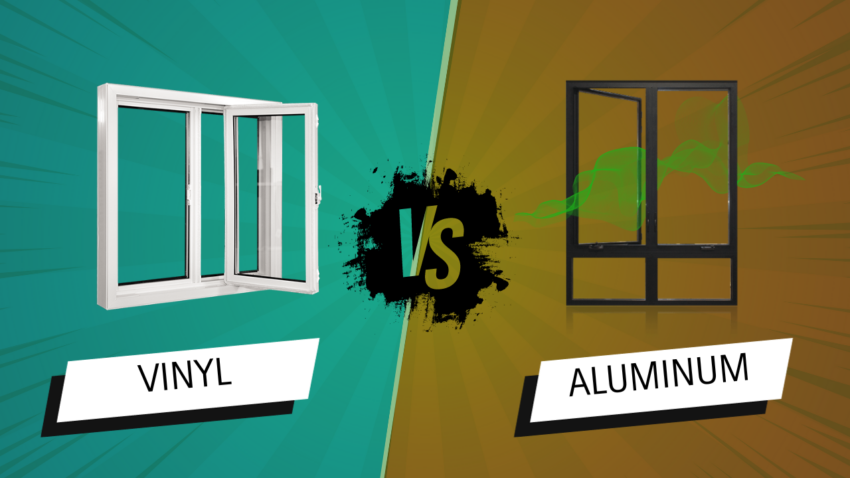When it comes to selecting new windows for your home, the vinyl vs aluminum windows debate is often at the forefront of the decision-making process. Both materials offer their own unique advantages, from energy efficiency to durability and aesthetics. In this article, we’ll break down the key differences between vinyl and aluminum windows, helping you determine which option is best suited for your needs.
Vinyl vs Aluminum Windows: Key Differences
Both vinyl and aluminum windows have their strengths, but they cater to different priorities. Let’s explore how they differ in terms of energy efficiency, cost, durability, and other important factors.

Energy Efficiency
One of the biggest considerations in the vinyl vs aluminum windows debate is energy efficiency. Vinyl windows are known for their excellent insulation properties. They are made from PVC material, which does not conduct heat, making them ideal for keeping homes warm in the winter and cool in the summer. This insulation reduces heat transfer, ultimately lowering energy bills.
In contrast, aluminum windows conduct heat more readily, which means they are not as energy-efficient unless they are equipped with thermal breaks—plastic sections that reduce heat transfer. However, these add-ons can significantly improve the energy performance of aluminum windows.

Cost
When comparing vinyl vs aluminum windows, vinyl is typically more affordable. Vinyl windows are generally less expensive to manufacture and install, making them a popular choice for homeowners on a budget. Aluminum windows, while more expensive, offer superior strength and durability, which might justify the higher upfront cost for certain applications.
Durability
Durability is another major factor to consider in the vinyl vs aluminum windows comparison. Aluminum windows are incredibly strong and can withstand extreme weather conditions without bending or warping. This makes them a great option for homes in areas with harsh climates or for larger window designs.
Vinyl windows, while also durable, are not as strong as aluminum. They can expand and contract slightly with temperature changes, but they resist issues like corrosion and rot that can affect other window materials. For most residential applications, vinyl windows offer more than adequate durability.
Vinyl vs Aluminum Windows for Insulation
When it comes to insulation, vinyl windows have the upper hand. The PVC material used in vinyl windows is a poor conductor of heat, which enhances its insulating properties. This helps keep your home more comfortable year-round and can contribute to lower energy bills.
On the other hand, aluminum windows require thermal breaks to achieve similar levels of insulation, as aluminum is a good conductor of heat. This means that without these breaks, aluminum windows are less effective at preventing heat loss.
Appearance and Aesthetic Appeal
Aluminum windows are often favored for their sleek, modern look. They have slim frames that allow for larger panes of glass, providing better views and more natural light. Vinyl windows, while effective and practical, typically have thicker frames and a more traditional look. However, they come in a range of colors and finishes to suit different design preferences.

Maintenance
In terms of maintenance, vinyl windows are the clear winner. They are virtually maintenance-free, requiring only occasional cleaning to keep them looking new. They resist fading, peeling, and warping over time. Aluminum windows, while durable, may need periodic repainting or refinishing to maintain their appearance, especially in coastal areas where corrosion could be an issue.
Vinyl vs Aluminum Windows for Cold Climates
For homeowners living in cold climates, vinyl windows are the better option. Their superior insulation properties make them ideal for keeping out the cold and preventing drafts. Aluminum windows, even with thermal breaks, may not offer the same level of protection against extreme temperatures.
Strength and Large Window Applications
If strength is your primary concern, aluminum windows are the way to go. Their natural rigidity and durability make them perfect for large windows or structures with wide glass expanses. Vinyl windows, while strong enough for most standard residential applications, may not be suitable for very large or complex window designs.
Comparing Window Materials
To help you further understand the vinyl vs aluminum windows debate, here’s a comparison table of the two materials across various factors:
| Feature | Vinyl Windows | Aluminum Windows |
|---|---|---|
| Energy Efficiency | Excellent insulation | Moderate, improved with thermal breaks |
| Cost | More affordable | Higher upfront cost |
| Durability | Good, resistant to rot and corrosion | Very strong, ideal for large windows |
| Maintenance | Low maintenance | May require periodic repainting or refinishing |
| Aesthetic Appeal | Thicker frames, traditional look | Sleek, modern, slim frames |
| Insulation | Superior insulating properties | Requires thermal breaks for good insulation |
| Cold Climate Suitability | Excellent for cold climates | Not ideal unless equipped with thermal breaks |
| Strength | Good for standard applications | Excellent, suitable for large panes |
| Weather Resistance | Great for most climates | Great but may corrode in coastal areas |
Conclusion: Vinyl vs Aluminum Windows – Which is Right for You?
Choosing between vinyl vs aluminum windows depends on your specific needs and preferences. Vinyl windows are an excellent choice if you’re looking for energy efficiency, affordability, and low maintenance. They are well-suited for homes in colder climates and provide great insulation.
Aluminum windows, on the other hand, are ideal for homeowners who prioritize strength, durability, and a modern aesthetic. If you have large windows or live in an area with extreme weather conditions, aluminum windows may be worth the higher cost.

